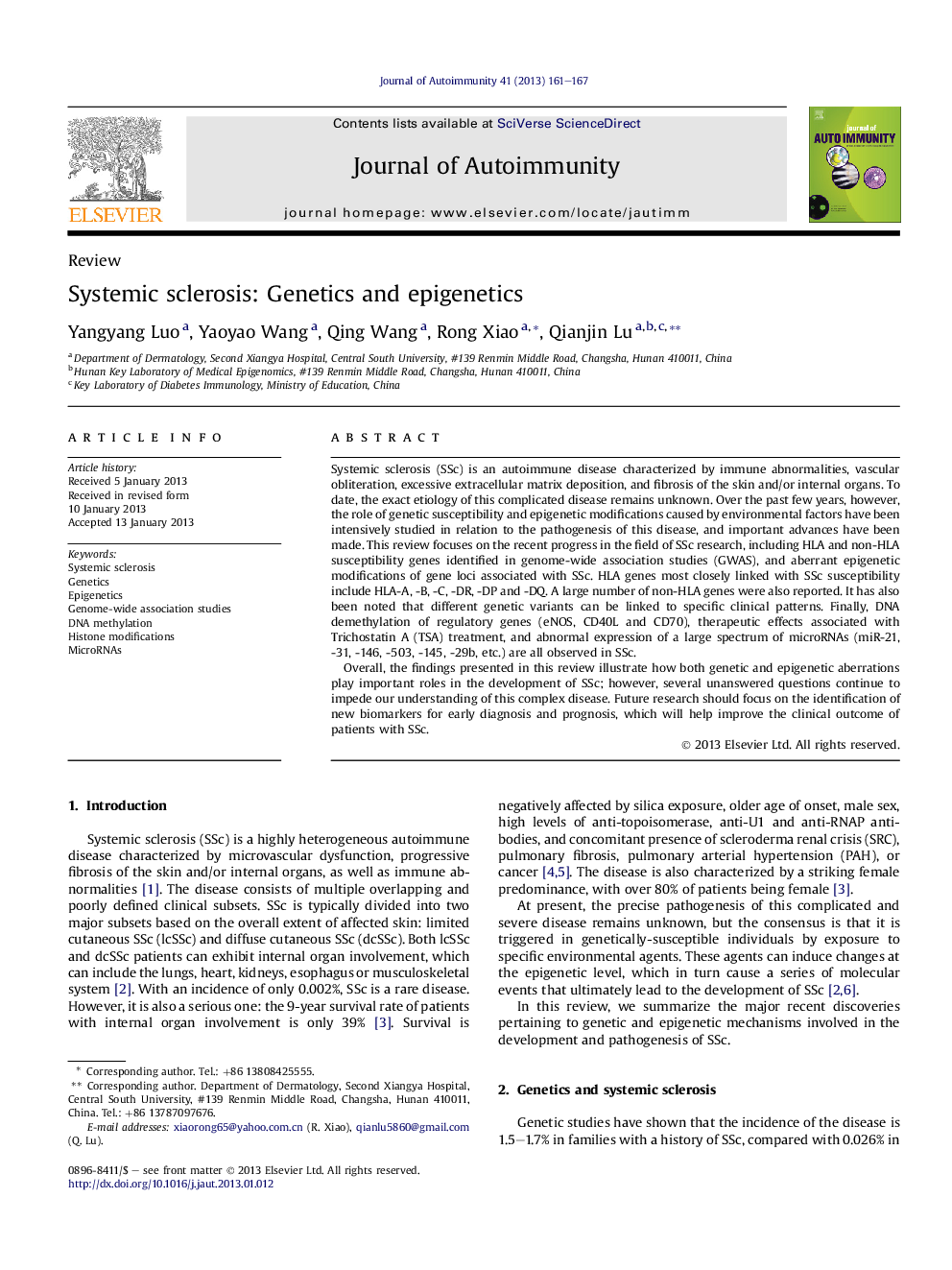| Article ID | Journal | Published Year | Pages | File Type |
|---|---|---|---|---|
| 3367911 | Journal of Autoimmunity | 2013 | 7 Pages |
Systemic sclerosis (SSc) is an autoimmune disease characterized by immune abnormalities, vascular obliteration, excessive extracellular matrix deposition, and fibrosis of the skin and/or internal organs. To date, the exact etiology of this complicated disease remains unknown. Over the past few years, however, the role of genetic susceptibility and epigenetic modifications caused by environmental factors have been intensively studied in relation to the pathogenesis of this disease, and important advances have been made. This review focuses on the recent progress in the field of SSc research, including HLA and non-HLA susceptibility genes identified in genome-wide association studies (GWAS), and aberrant epigenetic modifications of gene loci associated with SSc. HLA genes most closely linked with SSc susceptibility include HLA-A, -B, -C, -DR, -DP and -DQ. A large number of non-HLA genes were also reported. It has also been noted that different genetic variants can be linked to specific clinical patterns. Finally, DNA demethylation of regulatory genes (eNOS, CD40L and CD70), therapeutic effects associated with Trichostatin A (TSA) treatment, and abnormal expression of a large spectrum of microRNAs (miR-21, -31, -146, -503, -145, -29b, etc.) are all observed in SSc.Overall, the findings presented in this review illustrate how both genetic and epigenetic aberrations play important roles in the development of SSc; however, several unanswered questions continue to impede our understanding of this complex disease. Future research should focus on the identification of new biomarkers for early diagnosis and prognosis, which will help improve the clinical outcome of patients with SSc.
► Both genetics and epigenetics contribute to the development of SSc. ► HLA and non-HLA genes identified in GWAS are associated with clinical pattern of SSc. ► Aberrant epigenetic levels of genes in SSc-related cells are also observed.
